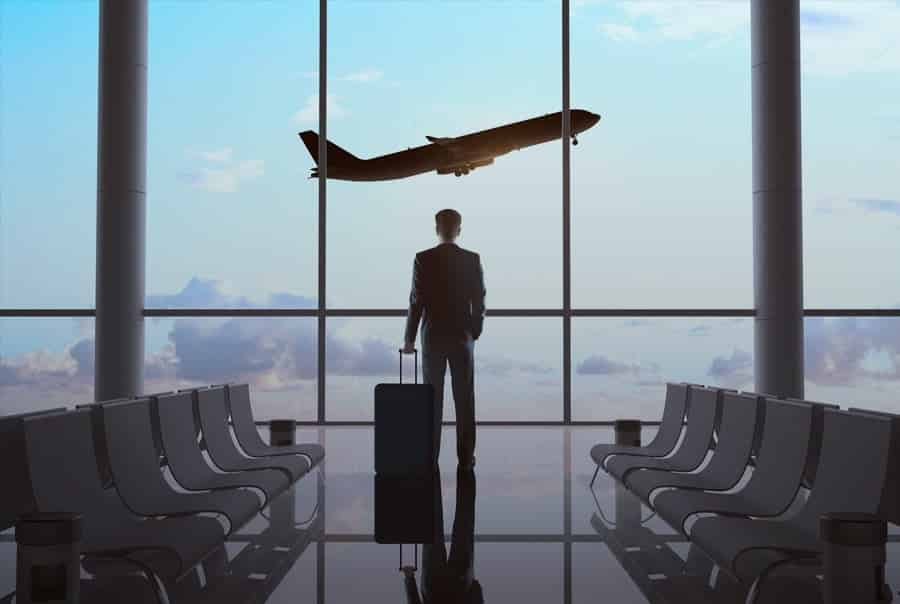Having spent the last two decades growing businesses in international markets across more than 30 countries, it’s fair to say our co-founder and director Paul Bandell has had his fair share of travel blunders. This week he spoke to Modern Manger to share his top tips on getting business travel right.
1. Triple check your documents before travelling
It sounds obvious, but there are often a number of challenges when it comes to pulling together the right documentation for your trip. It’s not just about making sure your passport is valid (or in the case of countries like Brazil and Ecuador, ensuring there’s still six months left before it expires) – but about checking that you’ve got all the necessary insurance and medical clearance to get you into the country.
A last minute trip to Angola might not quite be so simple when you take into account the necessary yellow fever vaccination, for example. Or car hire could be a problem in Bahrain if you haven’t applied for an International Driving Permit in advance. And Russia’s challenging visa application process definitely requires full concentration and early preparation to recall every country you’ve visited in the last 10 years.
2. Don’t just rely on ATMs to get you through
The days of travellers cheques may largely be over, but that doesn’t mean that having your credit card will be enough to get you through. ATMs aren’t as co-operative as you might think, and aside from not wanting to be stung by huge charges, actually finding cash machines in countries like Chad and Mali can be a huge challenge.
It’s a great idea to take some loose change with you – especially if you’re visiting multiple countries in one trip. In those parts of the world where tipping is more common, it’s helpful to be able to have some small change to hand as soon as you’re off the plane so you’re not put in any awkward – or potentially dangerous – situations where you’re left rummaging through big notes.
3. There’s no such thing as bad weather – just inappropriate clothing
This time of year, temperatures can dip to -20°C in Moscow and reach +25°C in Singapore. It’s easy to get used to Britain’s temperate climes and forget that unpredictable weather is part and parcel of daily life elsewhere in the world. But with packing space often limited, and a bag in the hold not always an option, make the most of the room available by layering up at the airport to save you cabin baggage.
4. Make sure your onward travel is as safe as possible
Don’t expect that you’ll always be able to walk out of an airport and straight into a legitimate taxi. It’s always best to ask the hotel to send a driver with your name on to wait for you at arrivals. It also means that if your flight is held up, the driver will already know and you won’t have the struggle of competing against fellow passengers for a cab.
If you’re at all suspicious about the legitimacy of your driver, don’t get in. Unscrupulous taxi touts have been known to copy the names of passengers from their counterparts’ real signs to try and convince arriving passengers that they are in fact from the hotel. If in doubt, it’s always best to contact the hotel and get them to address your concerns.
5. Take time in advance to understand local customs
Taking time out before your trip to understand the culture of the country you’re visiting is hugely important. With it being likely that you’ll be spending the majority of your time in airports, hotel rooms, taxis, meeting rooms or dinner events, having a basic understanding of local etiquette is vital to making a good impression and building stronger relationships.
Many Asian countries, including Japan and China, observe a strict hierarchy when it comes to meetings and dinner. Raising a toast, for example, is often carried out in accordance with the seniority of those attending – so toasting out of turn can be a seriously impolite move. Business is often based as much on trust as it is on the products or services you provide.
Adapting your own interactions to local customs is so important. In Russia, smiling at strangers is a faux pas, and will often leave them thinking you’re a little odd. Yet when you get to know your Russian partners, they’re very hospitable and friendly – but you can still guarantee on robust and straightforward negotiations.
And in Asia, always hand over your business card with two hands facing the recipient so they can read it without turning. When accepting theirs, make sure you study it for a long period of time – don’t make the mistake of just putting it away. Engage with the most senior person in the room first and if appropriate, wait to be introduced.
Final thoughts
Travelling for business can be a daunting prospect – and that’s on top of all the other considerations you have to think about when trading in international markets.
A good starting point is to engage with the UKTI, working with the local country manager to study the market and begin setting up your initial senior level introductions. Accepting invitations to British Embassy events is well received in most countries and can be a great opportunity to network and launch new products.
Take your time to appreciate the style and culture and most importantly, enjoy your travels. I’ve had some of my best interactions abroad, and it’s amazing how these experiences shape your thoughts on business.
